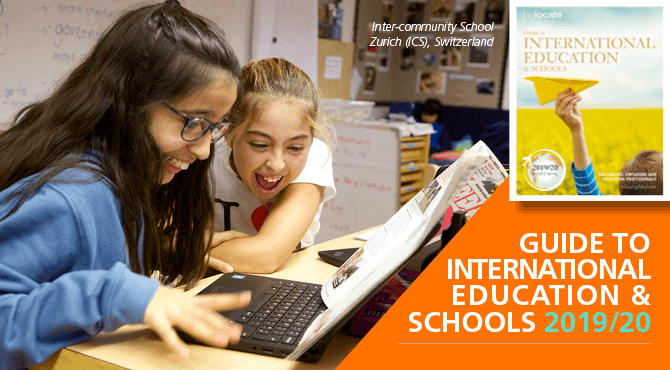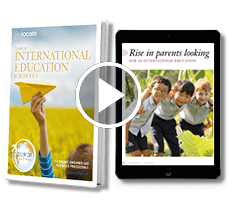Education in Switzerland
Switzerland has always been well regarded for its high standard of living. Globally mobile families are embracing the country’s way of life, its climate, its healthy outdoor lifestyle, and its excellent education provision.
Switzerland’s education system
State education is run and funded by the 26 cantons. The system is efficient and established, but can create some confusion for those entering the country, as each canton can have a slightly different approach to education provision.The language of instruction – usually German, French, Italian or Romansh – will depend on the region. Basic proficiency in the relevant language, or at least a willingness to learn, is a must, but language learning is a high priority in Swiss state schools, and, as a rule, most students learn at least two other languages during their school years. These are likely to be one of the other official languages of Switzerland, and English.Pre-school and lower secondary
All the cantons offer one to two years of free pre-school education – kindergarten or école enfantine. At present, the canton of Ticino offers three years’ scuola dell’infanzia.Compulsory education in Switzerland lasts for around 11 years; pre-school is compulsory only in some of the cantons. Typically, children start primary school at the age of five or six and lower-secondary education at 11.In almost all cantons, lower-secondary level lasts for three years. Pupils receive instruction in all or some subjects in performance-based groups. The manner in which they are assessed depends on the canton, but relocating children in these year groups should expect to be assessed in some way before being placed in a local school.Upper secondary
At the end of lower secondary, around the age of 15, students move into some form of upper-secondary schooling. It is at this point that they are streamed into either a vocational route, known as vocational education and training (VET), which includes practical training and class-based teaching, or a more strictly academic route, such as a Baccalaureate school or an upper-secondary specialised school.A Baccalaureate education typically prepares students for further study at university. Upper-secondary specialised schools largely prepare them for professional education and training, and for entry to universities of applied sciences, depending on the programme followed at the school. Students taking the vocational route also have the option of attending university-level colleges following the completion of their upper-secondary education.The conditions that students wishing to enter each route are required to meet vary. They include entrance exams, average grades at lower secondary, and teacher recommendation. The website of the Swiss Conference of Cantonal Ministers of Education (EDK) contains detailed information about each upper-secondary education route.Education standards
International business school INSEAD gave Switzerland first place in its 2017/18 Global Competitiveness Index, and it is still holding onto the top spot in 2019. “In Switzerland, thinking about becoming employable starts off in schools at an early age,” says Paul Evans, holder of INSEAD’s Shell Chair of Human Resources and Organisational Development. “At age 15, over 70 per cent of Swiss schoolchildren go on to select what’s known as the apprenticeship track, combining practical work experience with traditional theoretical learning.“Within the current Swiss government, half of the ministers have come out of the vocational stream. For future talent competitiveness, countries have to take vocational education – that is, employability – much more seriously.”Switzerland’s secondary-school pupils have also demonstrated their academic excellence in the 2015 international league tables run by the Programme for International Student Assessment (PISA). In a survey of the educational achievement of 15-year-old students in around 65 OECD countries, Switzerland’s mean maths performance was the highest among all European countries.International and independent schools
Against the backdrop of such an exemplary state-education system, independent schools offer the relocating family an alternative, perhaps more internationally transferable, learning programme – especially if the planned move is short-term and the family plans either to repatriate or to move on to a new overseas assignment.In a multi-lingual country such as Switzerland, there is also the opportunity to learn a new language. The Inter-Community School (ICS) Zurich, an English-language international school, which offers the IB Bilingual Diploma, has an innovative approach to developing children’s language skills. The language of instruction is English, but German holds an important place in the ICS curriculum.Children can choose a bilingual strand in the Early Years Programme and in Grade 3 within their first weeks at ICS, children embark on language immersion in the Swiss Alps where – for 24 hours – all of the instruction is in German.“Students find that they don’t need to be fluent to get through a day. They learn that with creativity, courage and collaboration they can understand and make themselves understood,” says a member of the ICS Communications Department.In the end, relocation to Switzerland offers globally mobile families an enviable choice of provision for their school-age children. Whether they choose local integration in a state-funded school or an internationally transferable learning programme in one of the country’s excellent international schools, parents can be assured of a quality education for their children.This article is from Relocate Global's Guide to International Education & Schools 2019/20 which is packed with expert tips and information for those relocating and the professionals supporting them. For volume options, co-branded editions, digital or online licence agreements and advertising opportunities, contact Fiona Murchie at +44 (0)1892 891334 or email fiona@relocatemagazine.comNow available as an ebook on Amazon! Simply download from Amazon onto your Kindle, mobile phone or tablet to read wherever you are!
Subscribe to Relocate Extra, our monthly newsletter, to get all the latest international assignments and global mobility news.Relocate’s new Global Mobility Toolkit provides free information, practical advice and support for HR, global mobility managers and global teams operating overseas.
 Access hundreds of global services and suppliers in our Online Directory
Access hundreds of global services and suppliers in our Online Directory For more education and school-related news, visit our Education and Schools pages.© 2019. This article first appeared in the 2019/20 edition of the Guide to International Education & Schools published by Relocate Global, Spray Hill, Hastings Road, Lamberhurst, Kent TN3 8JB. All rights reserved. This publication (or any part thereof) may not be reproduced in any form without the prior written permission of Relocate Global. Relocate Global accepts no liability for the accuracy of the contents or any opinions expressed herein.
For more education and school-related news, visit our Education and Schools pages.© 2019. This article first appeared in the 2019/20 edition of the Guide to International Education & Schools published by Relocate Global, Spray Hill, Hastings Road, Lamberhurst, Kent TN3 8JB. All rights reserved. This publication (or any part thereof) may not be reproduced in any form without the prior written permission of Relocate Global. Relocate Global accepts no liability for the accuracy of the contents or any opinions expressed herein.





















